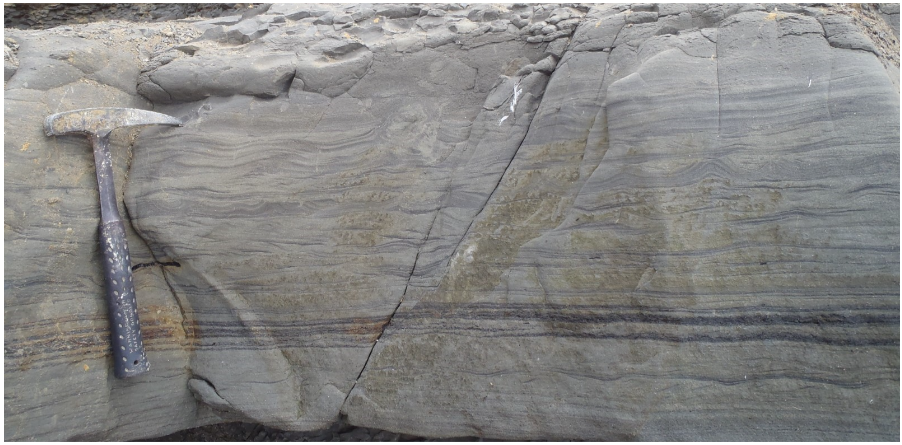Hydrodynamics of organic carbon: settling and reworking, implications for their dispersal and concentration in oceans
- Academic lead
- David Hodgson, School of Earth and Environment, d.hodgson@leeds.ac.uk
- Industrial lead
- Adam McArthur, Turbidites Research Group, a.mcarthur@leeds.ac.uk
- Co-supervisor(s)
- Mike Fairweather, School of Chemical and Process Engineering, M.Fairweather@leeds.ac.uk , Sophie Hage, Institut Français de Recherche pour l'Exploitation de la Mer (FREMER), sophie.hage@ifremer.fr , Mike Clare, National Oceanography Centre, michael.clare@noc.ac.uk , Gareth Keevil, School of Earth and Environment, g.m.keevil@leeds.ac.uk
- Project themes
- Environmental Flows
 Figure 1. Organic carbon (black layers) is preferentially stored in discrete intervals of a marine sediment. Understanding why and how this happens is critical to better calculate carbon budgets for the oceans.
Figure 1. Organic carbon (black layers) is preferentially stored in discrete intervals of a marine sediment. Understanding why and how this happens is critical to better calculate carbon budgets for the oceans.
Understanding the transport and deposition of organic carbon is essential for correctly calculating carbon budgets. Carbon, a key regulator of climate change if circulated in the atmosphere, may be locked away in marine sediments over geological timescales (Fig. 1). Yet, our understanding of the transport, deposition, burial, and reworking processes of carbon in marine environments remains poorly constrained.
This PhD project will develop novel physical and computational experiments designed to understand the transport and deposition (via settling experiments and Direct Numerical Simulation (DNS) computational experiments), and reworking potential (via flume tank experiments) of organic carbon.
The expected outcomes include high impact models of organic carbon preservation in marine environments. Such models are essential for better forecasting of the carbon cycle and the effects of future climate change. The PhD will be supported by the industry-supported Leeds Turbidites Research Group, and the student will interact directly with industry sponsors.
